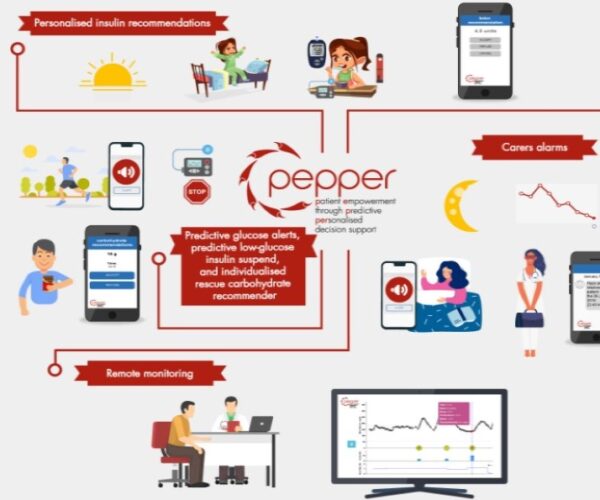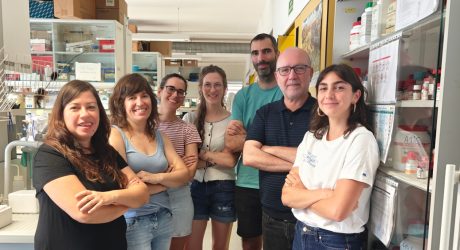PEPPER: a personalized decision support tool to help improve the lives of people with diabetes
The EU-funded project has been carried out by an international consortium of 6 partners including IDIBGI
According to the World Health Organisation, over 422 million people have diabetes. Many have to regulate their condition by administering insulin several times a day, either by injection or insulin pump. Currently there is no decision support system for insulin dosing on the market that adapts itself based on real-time activity data and blood glucose data. The EU-funded project, PEPPER, has addressed these needs. PEPPER’s team of computer scientists, clinicians and industry leaders have explored how unobtrusive, wearable technology, together with artificial intelligence and mathematical modelling, can offer freedom in daily decision-making.
PEPPER has created a personalised decision support tool that gathers data on a mobile platform. The system makes predictions based both on the real-time data and manually-entered information, such as carbohydrate consumption and alcohol intake. When users eat a meal, they consult the system to determine how much insulin they need. The artificial intelligence adapts the dose advice according to the previous history of that individual, which is updated dynamically. The whole process is supervised remotely by clinicians via a secure, cloud-based server.
The project, which ended in 2020, was funded under H2020 framework program (European Commission; Grant Agreement #689810) and has been carried out by 6 international partners, including Girona Biomedical Research Institute (IDIBGI), Oxford Brooks University, Imperial College London, University of Girona, RomSoft SRL and Cellnovo Ltd. IDIBGI, with the leadership of Dr Mercé Fernández-Balsells and Dr José Manuel Fernández-Real (CIBERobn), led the clinical validation of the PEPPER system, including preparation of clinical protocols, recruitment and enrolment of patients, execution of the trials and evaluation of the clinical results.
We are excited about the project results which show that, despite limitations, the data is promising and suggestive that an adaptive bolus advisor may have a potential to improve health outcomes for people with insulin-dependent diabetes. There is wide scope for integrating PEPPER into routine diabetes management. The adaptation feature of the PEPPER algorithm also has potential for use within artificial pancreas systems. These findings show that our work has potential benefit to society by improving health outcomes and thereby reducing costs
Dr Clare Martin, the PEPPER project coordinator
For more information about the project:




